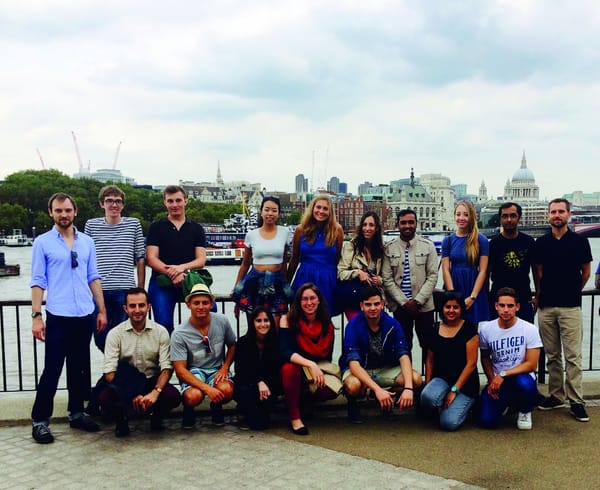This House would create an unelected legislative of science technocrats
ICU Debating Society discuss
Proposition: Anita Chandran
The problem with our government is that good suggestions, sensible ideas, and reasonable policy are lost to populism, the desperation for voter buy-in and the lack of political consensus. Moreover, the government is stunted by apathy in wide swathes of important issues, from green policy to parts and segments of the financial sectors: simply put, the voters care about rising immigration levels and the NHS, and our discussions about sensible energy policy never happen.
What happens instead is problematic. Firstly, issues such as NHS funding become highly polarised, with disproportionate amounts of funding going to certain, emotively appealing sectors (such as cancer research), leaving others (stroke and emergency pathways) in the lurch. Secondly, it becomes much easier for politicians never to be challenged on their more subtle policies, especially in “unpopular” legislative areas. Lastly, political parties are able to make attractive sounding but potentially economically terrible pledges (‘we’re going to fix all energy prices’ – sorry Labour, I love you, but I don’t buy it).
These problems could be mitigated by including a technocratic authority in our parliament. These technocratic bodies would be comprised of respected scientists, selected from a wide range of disciplines and universities around the country. Individuals on this body would have to be knowledgeable about the political system and would face periodic review. They would be allowed to veto policy and legislation, as well as proposing their own alternatives.
Coming from a wide range of legitimate research, these bodies are able to make decisions which are grounded in research and evidence-based methods. They can, therefore, choose cost- and energy-efficient strategies. Furthermore, they are more able to look into the nooks and crannies of policy, while prioritising their areas of research, instead of pandering to solely political agendas. This is especially effective for those policies which get very little public discussion. In as much as each of these scientists has an incentive to maintain their own credibility, they are self-regulating, and best placed to understand highly technical policy decisions.
Opposition: Niall Jeffrey
Science is above politics. That is not to say that the results of science don’t have political ramifications, but the results themselves are true or false, whether or not they affect the world. For each of the issues we are discuss – climate change, drug policy or reproductive medicine – it is important that the science is deliberated in a setting with as little interference as possible.
By giving an unelected body of scientists power over people’s lives, we irrevocably destroy the impartiality of science. This takes away the little influence that science has in policy, by politicising scientific fact.
Under the status quo, scientists act as advisors, and can affect policy by telling the government the correct course of action. The government can, of course, ignore this advice, but the scientific community can then publicly campaign against the government. Voters can therefore trust that scientists are not changing the facts for political gain, and so are unlikely to support politicians who actively oppose the scientific mainstream.
This balance of power is not true in the US for many potential reasons, but the effect is that science becomes a topic for political debate. Politicians have confidence to argue the scientific case rather than the political. When unelected scientists in the UK become part of the political decision making process, British politicians are forced to engage on these kind of terms.
The public will now no longer see the difference between the politics and the science. When people understand the political incentives that could be affecting the decisions of these technocrats, they no longer trust in the scientific opinion. People will not trust these scientists on the science, whether or not they have been politicised. Any doubt at all will diminish support for things like climate change from the ground up.
So overall we get a collapse of support, and no political capital within Parliament to engage with impending threats like climate change. But what about trust in science?
The day that people can no longer support scientific endeavour without doubt will precede the day when science itself can no longer progress. The backlash; funding cuts and fear of political bias will continue to destroy the scientific community for as long as this technocratic body is allowed to exist.
By doing this we would lose both good policy and good science.








